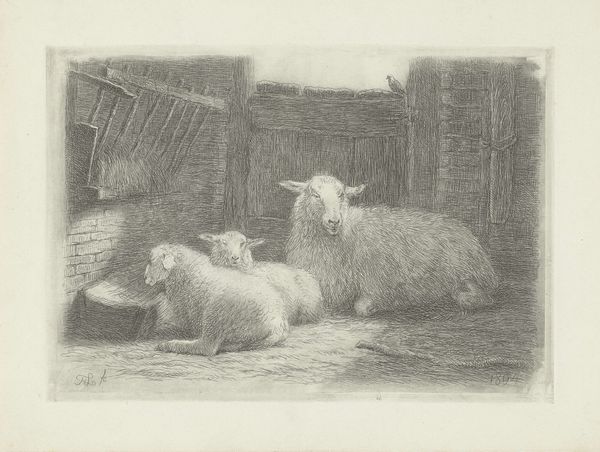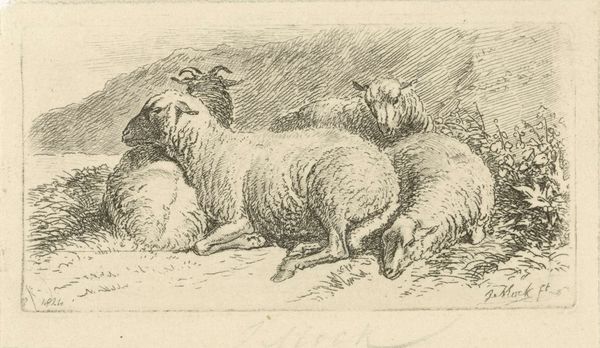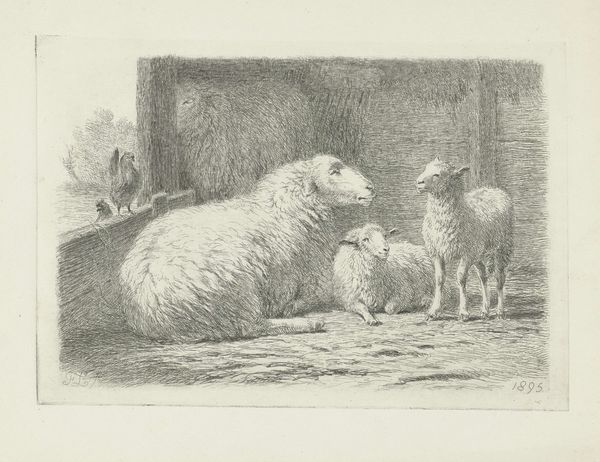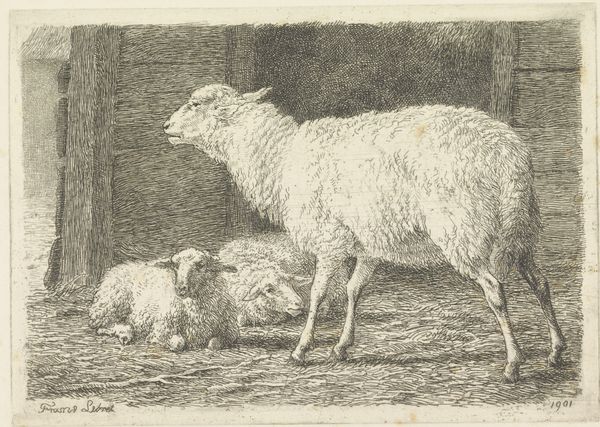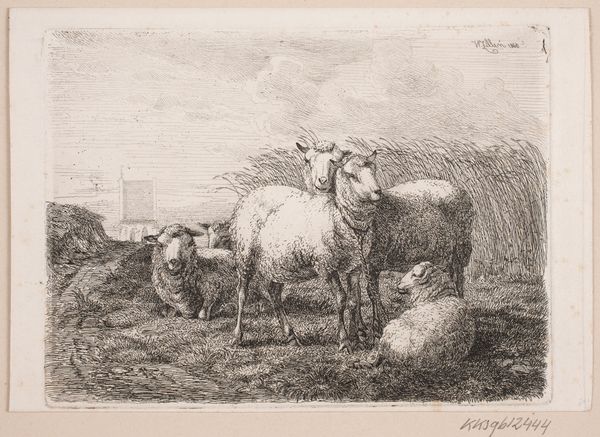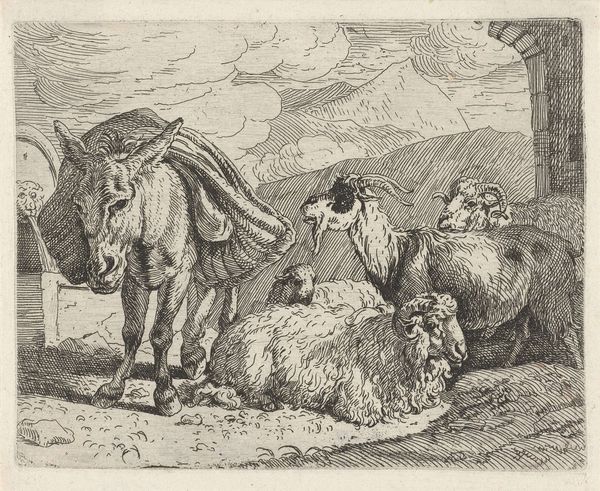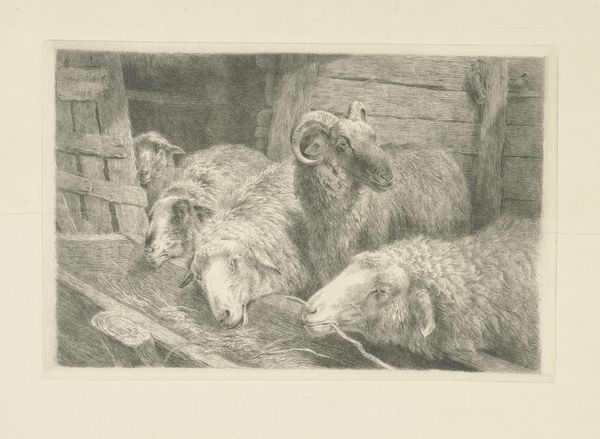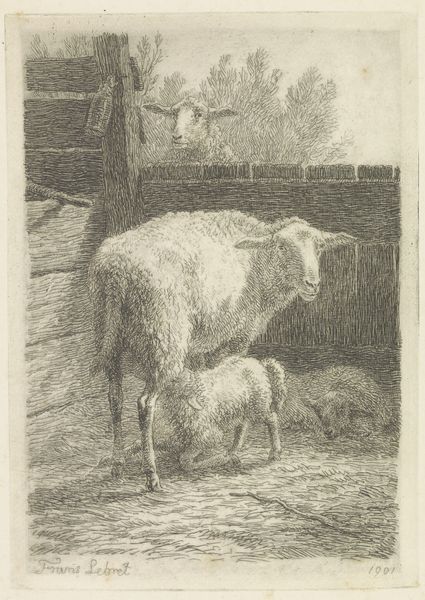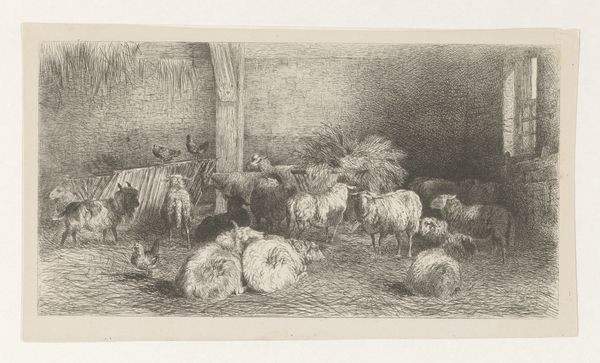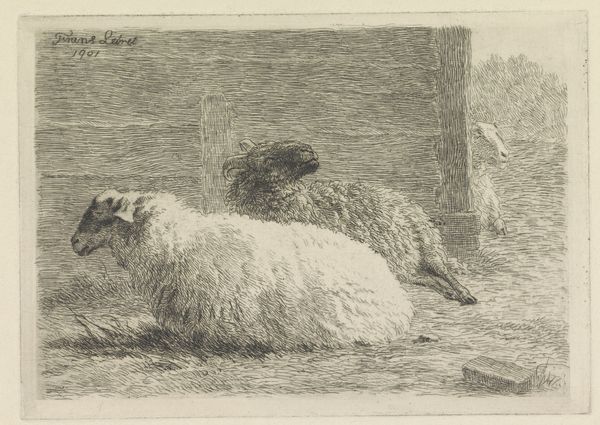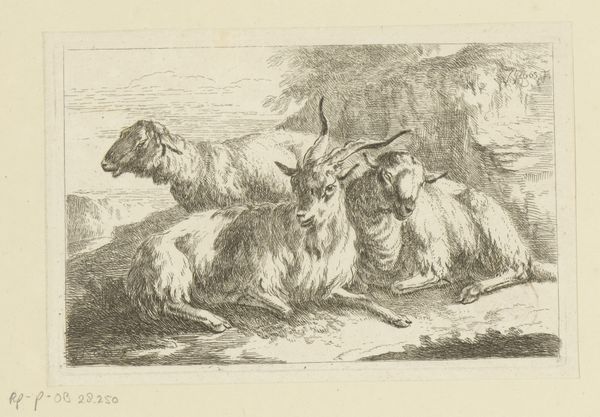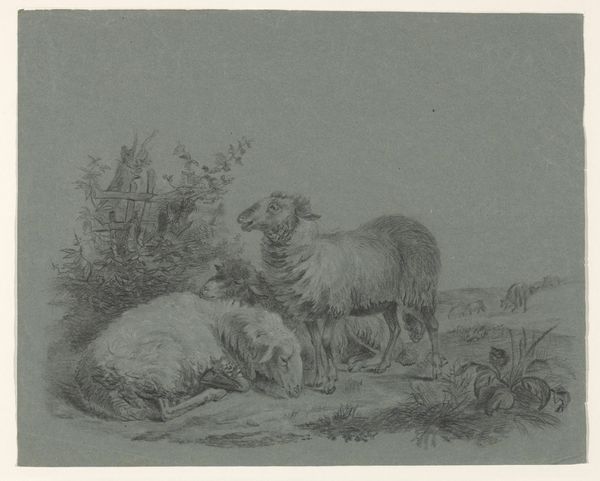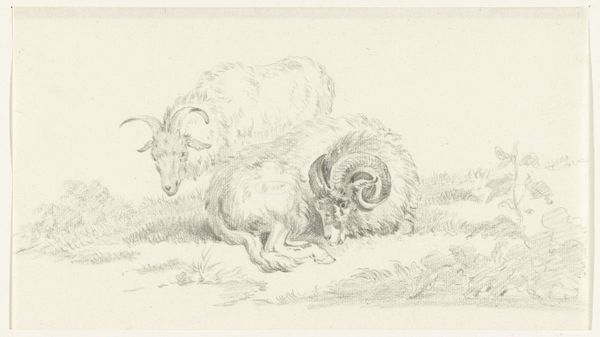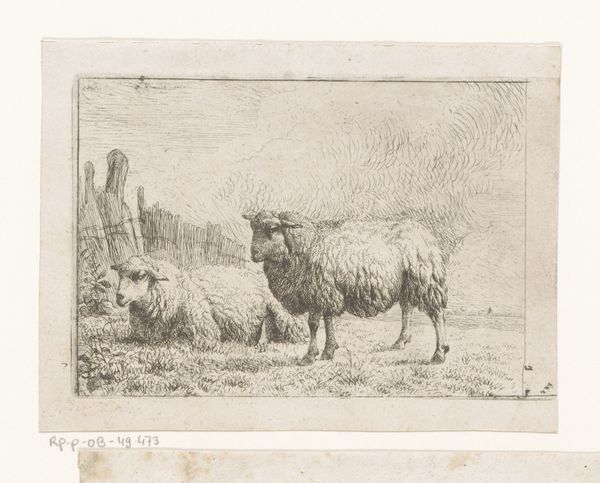
drawing, pencil
#
drawing
#
charcoal drawing
#
pencil drawing
#
pencil
#
genre-painting
#
realism
Dimensions: height 138 mm, width 200 mm
Copyright: Rijks Museum: Open Domain
Frans Lebret created this etching, "Vier schapen," translating to "Four Sheep," in 1895, a period marked by significant shifts in agriculture and society. Lebret, born in the Netherlands, came of age during a time of industrial change which was influencing Dutch rural life. Here, Lebret invites us into a seemingly simple scene of pastoral life. But what does it mean to depict the everyday? Is it a quiet resistance to the rapid changes of the time? The sheep, huddled together, suggest a sense of community and reliance, perhaps mirroring the social bonds within rural communities. The lone sheep facing away encourages us to consider themes of belonging, identity, and the gaze. As you look at this print, consider the ways in which Lebret uses the pastoral not just as a subject, but as a site for exploring broader questions of existence. What emotions does the artwork evoke in you?
Comments
No comments
Be the first to comment and join the conversation on the ultimate creative platform.
